Did you know that cannabinoids aren’t only found in cannabis?
True story.
It’s widely assumed that cannabidiol (CBD) is only found in the Cannabis sativa L species of plant, namely hemp and marijuana.
There aren’t many people that are aware, however, that cannabinoids can be sourced from other plants aside from cannabis. And they seem to work in harmony with the endocannabinoid system.
Non-Cannabis Plants, Cannabinoids, and the Endocannabinoid System
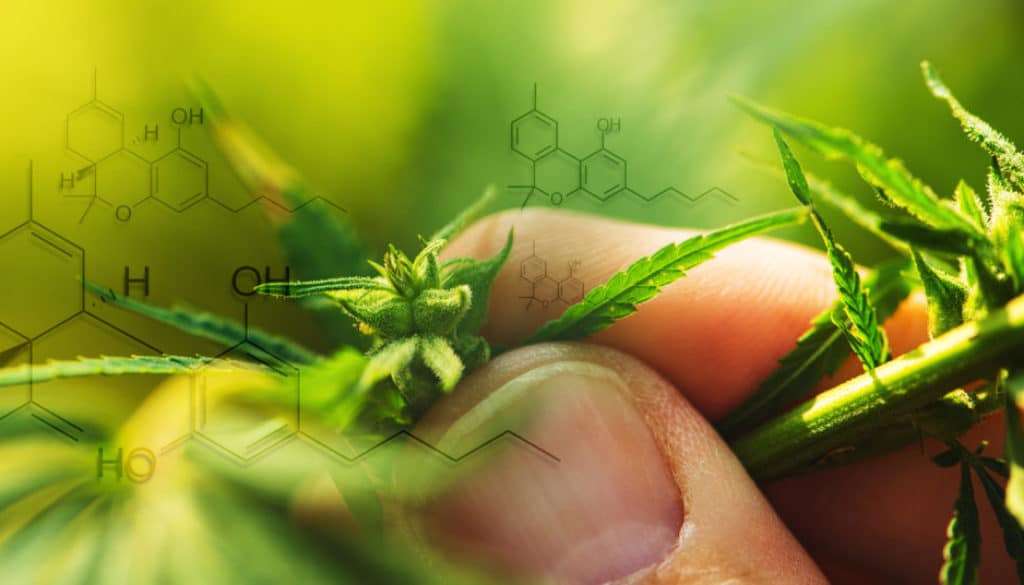
Cannabinoids are chemical compounds found in several species of plants, not just cannabis.
They are also produced naturally in the human body, which are known as endocannabinoids.
Phytocannabinoids are the cannabinoids produced by plants.
Following are just a few of other plants that contain cannabinoids aside from cannabis:
Coneflower (Echinacea)
Due to the effects it has on the immune system, echinacea is famous during cold and flu season.
It’s also used for pain relief, as well as fatigue and migraines. This is because echinacea contain a compound known as cannabimimetics, which imitate cannabinoid characteristics.
While they aren’t the same as actual cannabinoids, they do interact with the CB2 receptor (responsible for regulating the immune system and inflammation).
Electric Daisy (Acmella oleracea)
The electric daisy is so effective at alleviating tooth pain that it’s being contemplated for use it in a new dental drug.
While it doesn’t contain cannabinoids per say, it does contain cannabinoid-like compounds called N-isobutylamides that, like echinacea, interact with the CB2 receptor to provide pain relief.
Black Pepper (Piper nigrum)
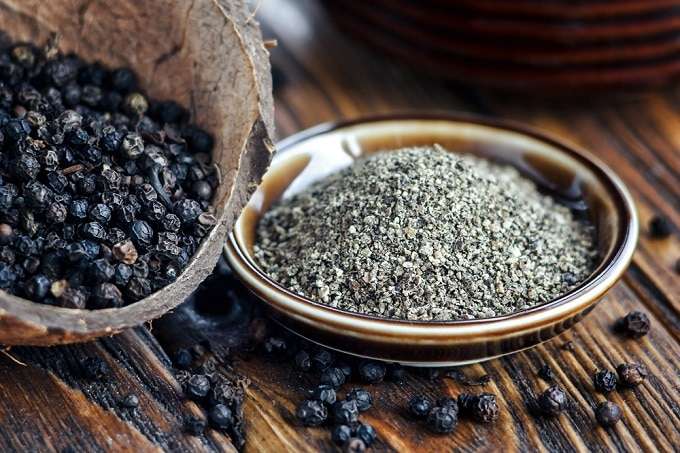
Black pepper is likely one of the last things that comes to mind when you think about cannabinoids, but it works very similarly.
Black pepper is known to work in harmony with the CB2 receptor and possesses an anti-inflammatory effect.
Helichrysum (Helichrysum italicum)
Helichrysum is a flower native to South Africa that contains significant amounts of cannabigerol (CBG), a phytocannabinoid also found in cannabis.
It is commonly used as a mood-stabilizer, as it contains antidepressant qualities. CBG is also a known anti-inflammatory.
It’s use in African ceremonial rituals has led to the suggestion that it may also contain psychoactive properties.
While these plants have all shown to mimic the effects of cannabinoids, they don’t exactly contain CBD.
Recent research, however, has led to the increased interest of another plant species that could.
That plant is hops.
As it turns out, hops (Humulus lupulus) and cannabis are closely related.
So much so that hops could contain CBD…something that has led one company to rethink the way CBD is sourced.
Are Hops the Future of Sourcing CBD Without the Cannabis Plant?
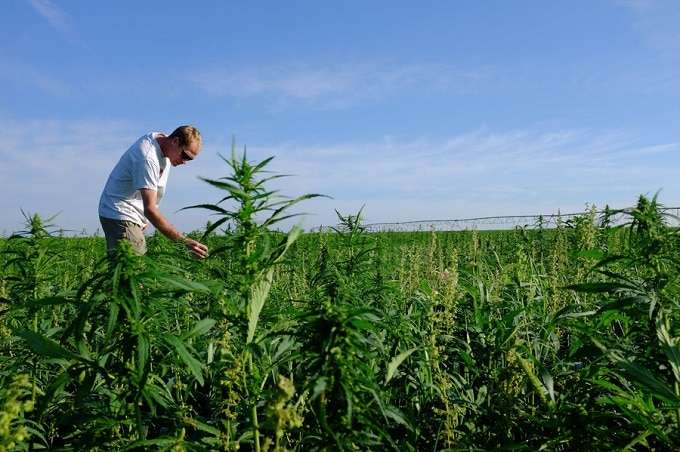
While the recent passing of the 2018 Farm Bill will ultimately legalize industrial hemp, the legality of CBD has always been in somewhat of a gray area.
While many in the industry saw matters of legality as somewhat of a setback, Isodiol, a group of companies that cultivate and harvest industrial hemp to extract CBD that is sold globally, saw it as a chance to obtain CBD from other sources.
With the striking similarities between cannabis and hops, they naturally turned their eyes to the plant famous for making beer.
In September 2017, Isodiol announced the creation of a Phytoceutical Division that would focus on cannabinoids and terpenes derived from non-cannabis sources using proprietary extraction methods.
Isodiol CEO, Marcos Agramont had the following to say:
“We are excited to be launching this new division and some of the first new products we will be bringing to the market will be CBD based which will not be derived from the cannabis plant.
These highly innovative new products will open up our ability to sell into International markets much faster due to less regulations and restrictions surrounding our non-cannabis derived source of the CBD.
In addition, we are confident in this new product line’s superb efficacy, which, in some cases, has demonstrated greater effectiveness than many cannabis derived products currently on the market.”
Fast forward a little over a year later, and some of these new products have hit the mainstream market.
According to Christopher Hussey, Isodial spokesperson and Chief Communications Officer, the first non-cannabis CBD product produced by the company will be a time-released tablet that dissolves in the lower intestine.
Hussey says that the tablet is designed to “maintain bio-activity.”
In a meeting at the Las Vegas-based MJBizCon in November, Hussey said, “What few people are aware of is that cannabis isn’t the only species that produces cannabinoids.
There’s flax or Echinacea and now humulus—commonly known as hops, from our new ImmunAG CBD product. By finding CBD in hops we have found a way to provide legal CBD.”
CBD Sourced from Hops…Too Good to Be True?
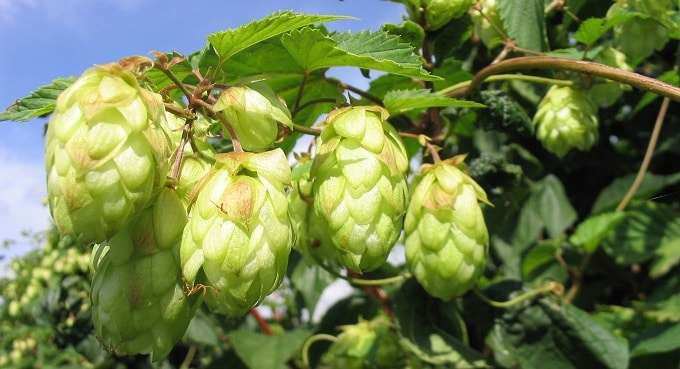
While it sounds promising, there is some skepticism surrounding the idea.
Dr. Ethan Russo, neurologist, cannabis researcher, former president of the International Cannabinoid Research Society, and former senior medical advisor for GW Pharmaceuticals is one of these skeptics.
“Hops (Humulus lupulus) is also from the Cannabaceae family, and the closest plant relative of cannabis,” says Russo. “However, hops does not contain CBD naturally.
So, if there were hops that produced CBD, it would only be after it had been genetically modified artificially, a step that I certainly do not endorse.
Alternatively, a hops extract might have CBD added, but that would be a marketing ploy with no real scientific, medical, or legal advantage in the end.”

According to Hussey, Isodiol did not genetically modify hops plants to create CBD. They did have the plants marked with DNA identifiers, however, for patent protection.
He says the company has found two varieties of hops that produce trace amounts of CBD that are now being used to create various products.
Are There Benefits from Sourcing CBD Without the Cannabis Plant?
With the legal regulations and restrictions that have been a huge part of the CBD industry as a whole, Isodiol believes that CBD sourced from hops will open up the availability of CBD to an international market.
Without legal restrictions, more people will have access to CBD oil where they might not be able to when sourced from hemp or cannabis.
Earlier in 2018, another large hemp CBD company, Medical Marijuana Inc. unveiled a new CBD oil that is made with a variety of hops known as Humulus kriya, a strain of hops that is said to produce 18% CBD, which is similar to cannabis.
This new, hops-based CBD oil called Humulus oil, however, contains under 1% CBD, while most CBD oils on the market derived from hemp contain at least 2-3% CBD.
While this could provide an alternative to those who cannot legally obtain CBD oil sourced from hemp, the low concentration of CBD could be considered a bit disquieting for those looking for high concentrations of CBD in the oil they consume.
Sourcing CBD Without the Cannabis Plant…Only the Beginning
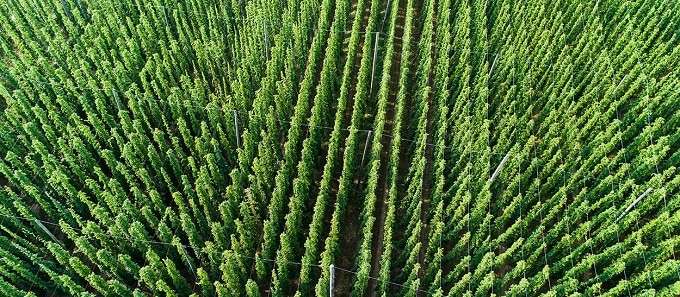
Hussey says that “given the unstable political landscape surrounding cannabis, we believe that the pursuit of alternative sources of cannabis is not only a prudent direction but also the direction the entire industry will take in the future.”
Are CBD products sourced from hops the next wave of the future?
Maybe.
“The industry currently serves such a small amount of people,” says Hussey.
“What if you could make a statement and make an educational initiative not around cannabis, but around an ingredient in the plant that civilizations for millennia have known is one of the greatest things you can put in your body?
“What if, instead of serving a cannabis-aware marketplace, you could create products that soccer moms are happy having in their mini-vans and coaches are happy giving to their team and high school teachers are happy teaching about because there’s no stigma whatsoever?
“That’s the future that Isodiol is helping to create.”
For an industry that was built on cannabis, it’s difficult to say if what Hussey claims will truly manifest.
For now, those interested in taking CBD that isn’t sourced from cannabis have an alternative option.
If CBD derived from hops truly contains the same benefits as CBD, however, these new products are only the beginning.
